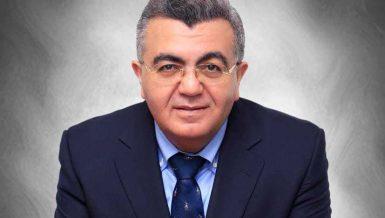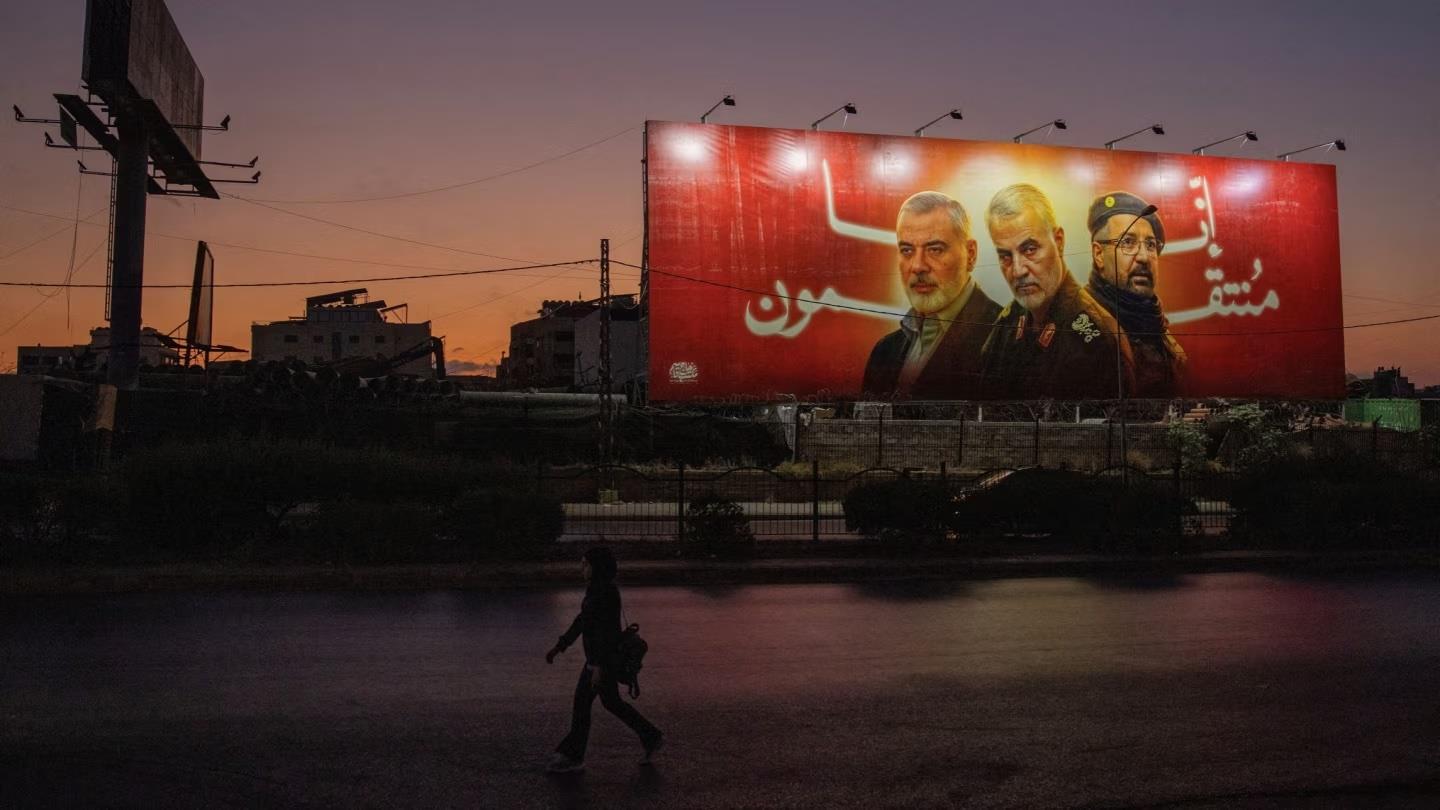
Averting Middle East War: Delicate Dance Of Diplomacy And Retaliation
Just moments before the deadline on Thursday, a Hollywood-esque scene unfolded in the Qatari capital of Doha, with white smoke signalling the commencement of last-chance negotiations between Israel and Hamas aimed at de-escalating the situation in the Gaza Strip. However, the choice of Doha over the anticipated venue of Cairo necessitates a reassessment of the situation since the dual assassinations of Ismail Haniyeh in Tehran and Fouad Shukr in the southern suburbs, the stronghold of Hezbollah in Beirut.

Dr Hatem Sadek
Following the assassinations, Iran became the primary and direct target for Israel, without any pretence or embellishment. Iran, under pressure to respond to the affront during the inauguration of its new president, is acutely aware that its priorities do not lie in Jerusalem or the Palestinian cause, as publicly stated. Instead, Iran faces other critical issues that are matters of life or death for the regime. Foremost among these is reintegration into the regional environment after years of isolation and conflict since the Iranian Revolution in 1979. Secondly, Iran's nuclear program, a major investment, has progressed to the point of acquiring its first nuclear weapon.
The threat of retaliation against Israel, articulated by Iranian leaders after the assassination of Haniya in Tehran, was a shocking blow that destabilised the mullahs and led to statements for which they may not have been practically prepared. This situation could potentially result in unacceptable and significant losses, setting them back decades.
Consequently, it became imperative for them to find a way to preserve their dignity. The most acceptable and least costly solution would be to leverage the Palestinian resistance, which they consistently endorse.
Therefore, steps were taken to ensure that the next figure to succeed Haniya would be acceptable to them, as this individual would facilitate their exit strategy. Khaled Meshaal, the most likely candidate, was excluded due to his past incitement against Bashar al-Assad's regime in Syria post-2011 and his alliance with Turkey to counter Iranian influence in Damascus.
Instead, Yahya Sinwar emerged as the preferred candidate for Tehran, despite the challenges of managing the movement from his hiding place in the Gaza tunnels since before the October 7 attack. He was seen as the only one capable of alleviating Tehran's embarrassment during this critical period. Tehran did not hesitate to prepare for a safe exit, announcing its commitment to any agreement Sinwar might reach with Israel and even opening channels for further discussions.
Consequently, Doha emerged as the most suitable location for Iran to conduct a final round of negotiations. This choice is due to existing coordination between the two countries, the ease of communication among negotiators, and the provision of necessary assurances to prevent the collapse of the talks in the event of any party's obstinacy.
As preparations for a military confrontation between Iran, its proxies, and Israel reach a critical point, alongside the enhancement of military capabilities in the region, the United States is intensifying its diplomatic efforts. These initiatives aim to establish a mutually agreed framework that would contribute to strengthening a general ceasefire and, at the very least, prevent the escalation into a regional war.
It appears that Washington is seeking to leverage the tensions with Iran to expedite the establishment of a regional arrangement that also encompasses Gaza. Additionally, it aims to secure an agreement regarding the Israeli hostages to conclude the conflict in the Gaza Strip in a way that allows the Iranians to present it as an achievement following their involvement. In exchange, they may agree to freeze or modify any potential retaliatory actions against Israel in response to the assassination of Ismail Haniyeh.
From the American perspective, such a framework, coupled with the genuine concerns of the Tehran regime regarding involvement in a broader conflict, potentially alongside further assurances from the United States, could provide the Iranians with an opportunity to save face after escalating their rhetoric against Tel Aviv.
This framework may also pave the way for alleviating regional tensions and will encompass a roadmap for ending the conflict in Gaza, the release of hostages, an agreed resolution on the northern front, and a cessation of hostilities with the Houthis.
This can be inferred from the statement made by US Secretary of State Antony Blinken, who discussed efforts aimed at reducing tensions with Iran and the progress in negotiations for a ceasefire in Gaza. Additionally, Tehran's direct response indicates its willingness to endorse any agreement approved by Hamas, or more specifically, by Yahya Sinwar, the key figure representing Tehran within the movement.
Nevertheless, the likelihood of achieving such an arrangement or formula is somewhat limited. Firstly, from Iran's perspective, it is highly questionable whether compensation in Gaza would satisfy their desire for retribution following the severe blow to their national pride and the declaration of war articulated by Khomeini himself. Furthermore, from their viewpoint, this formula does not align with the concept of“unity of the arenas” that Tehran has formulated against Israel.
Secondly, regarding Hezbollah, if Iran does not respond to the assassination of Haniya, it is anticipated that Hezbollah will bear the responsibility alone or alongside other fronts for responding to the assassinations of both Haniya and Fouad Shukr. Under these circumstances, it is difficult to envision Hezbollah leader Hassan Nasrallah settling on a moderate response to the assassinations while simultaneously being prepared to discuss the withdrawal of his forces from the border with Israel, placing himself in a precarious position both within Lebanon and among the party's popular base.
Thirdly, the question arises as to whether the concessions in Gaza are appropriate from Israel's perspective and whether it is justifiable to utilise them as a form of“compensation.” Assuming that the political leadership in Israel remains steadfast in its positions, any ceasefire in Gaza should be temporally limited and should not entail relinquishing Israeli control over the Philadelphi Route and the Netzarim Corridor.
At this juncture, concessions that extend beyond these parameters would provide Hamas with a lifeline, enabling it to recover, strengthen its governance, and renew its military capabilities from its standpoint. If the justified insistence on these positions continues to allow for an agreement, it remains uncertain, in the eyes of the Iranians, whether such a deal constitutes sufficient compensation.
Fourthly, the current conflict between Israel and the Islamic Republic, although triggered by allegations surrounding the assassination of Haniya, has deeper roots. The underlying causes are linked to Iran's nuclear agenda, which aims to fulfil its vision of regional dominance and the destruction of Israel.
Additionally, this regime has established a ring of fire around Israel through various proxy forces in Yemen, Iraq, and Lebanon. From Tel Aviv's perspective, solutions that do not address these fundamental issues are unlikely to endure, and it remains uncertain whether achieving calm through such means is worthwhile.
There is also the potential for escalation that may compel the United States to increase its involvement in the conflict. The Iranian threat poses a significant challenge not only to Israel but also to broader US interests. Iran is a key player in shaping a coalition of countries that oppose the United States and the West.
Its influence and actions extend beyond the confines of the Middle East, evident in the war in Ukraine and its interactions with nations in Africa, Asia, and South America. This is the case even in the absence of nuclear weapons. The United States plays a crucial role not only in restraining Iran but also in addressing the underlying issue-the regime of the Ayatollah.
The primary objective of Washington is to prevent a regional war, urging Israel to avoid any unwarranted escalation that could entangle the United States in such a conflict. In contrast, Iran appears to favour a strategy of“attrition” or possibly a psychological warfare approach that would impose significant costs on Israel, rather than engaging in a large-scale military response that could push the region to the brink of war.
However, Israel's desire, particularly that of Prime Minister Benjamin Netanyahu, is to see a decisive and swift conclusion to what he refers to as the“unity of fronts.” In this scenario, the resolution of the war equation would remain solely in Netanyahu's hands.
Dr Hatem Sadek is a professor at Helwan University
Legal Disclaimer:
MENAFN provides the
information “as is” without warranty of any kind. We do not accept
any responsibility or liability for the accuracy, content, images,
videos, licenses, completeness, legality, or reliability of the information
contained in this article. If you have any complaints or copyright
issues related to this article, kindly contact the provider above.


















Comments
No comment